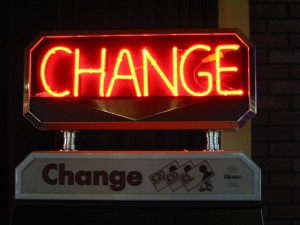Why is it that we often wait until we’ve lost some component of our health or fitness before we decide we are going to try to get it back?
Why do we wait until the odds are stacked against us, until the challenge is seemingly insurmountable, before trying to fix things, to set them right?
Especially when we know what we should be doing. When we know we need to exercise more, eat healthier, stress less, and sleep more.
It’s not for lack of information.
We have Google. Yahoo. Bing. Men’s Health. Oxygen magazine. Or any of the other innumerable portals of health and fitness knowledge that are readily available for mere dollars or often, for free.
Too much information, perhaps? Paralysis by analysis? Too much contradictory “facts & fallacies” from the health and fitness gurus, the Dr Oz’s, the Atkins of the world?
But there are tools and resources out there to filter through all that noise.
Is it because change is hard? Because fixing your health and fitness requires a massive, complete, and immediate lifestyle change? An extreme makeover of sorts with hours upon hours of exercise, regimented diet plans and no more fun?
Surprisingly, change isn’t as hard, or as negative, as you think it may be.
People have kids. Sometimes more than one. People make big investments or purchases: houses, boats, cottages. Jobs and careers change. Travel to foreign or exotic places. Relationships are formed and broken: people get married and divorced.
Those are big changes, yet people do them all the time. Many of them are the same people who believe that changing health and fitness is nearly impossible.
So why do so many people struggle with making that health and fitness change?
Too much, too soon.
The same way we see people in our physiotherapy practice come in with injured knees: they started full tilt into a running program after spending the whole winter curled up on the couch. There was no build up. Their body wasn’t given a chance to develop the ability to cope with the stress of running.
Too much, too soon.
It’s the same way we see people in our chiropractic office for neck or shoulder problems: they decided to paint the whole house in one go, spending hours on end with no rest with their heads tilted skyward and their arms extended overhead.
Too much, too soon.
We see the same all-or-none mentality in people looking to transform their bodies, looking to lose the spare tire around their midsection, looking to improve their energy levels, their base fitness.
Too much, too soon.
It doesn’t have to be this way.
Small changes repeated consistently lead to huge results.
If you’re trying to lose extra weight, start small. You don’t need to revamp your whole diet. You don’t need to starve yourself and fight off self-inflicted hunger pangs. You don’t need to restrict yourself to boiled chicken and broccoli for every meal.
You could do something as simple as cutting out any calorie containing beverage and switching to just drinking water.
And then repeat that habit consistently.
If you’re looking to improve your fitness and you’re completely sedentary, it could be as simple as adding in 5-10 minutes of intentional exercise a day.
You could start by just walking, or doing squats in your living room.
As long as it’s a little bit more than what you were doing before, it’ll have a positive impact.
And then repeat that habit consistently.
To your optimal health. And ultimate performance.

(inside Peak Performance Golf)